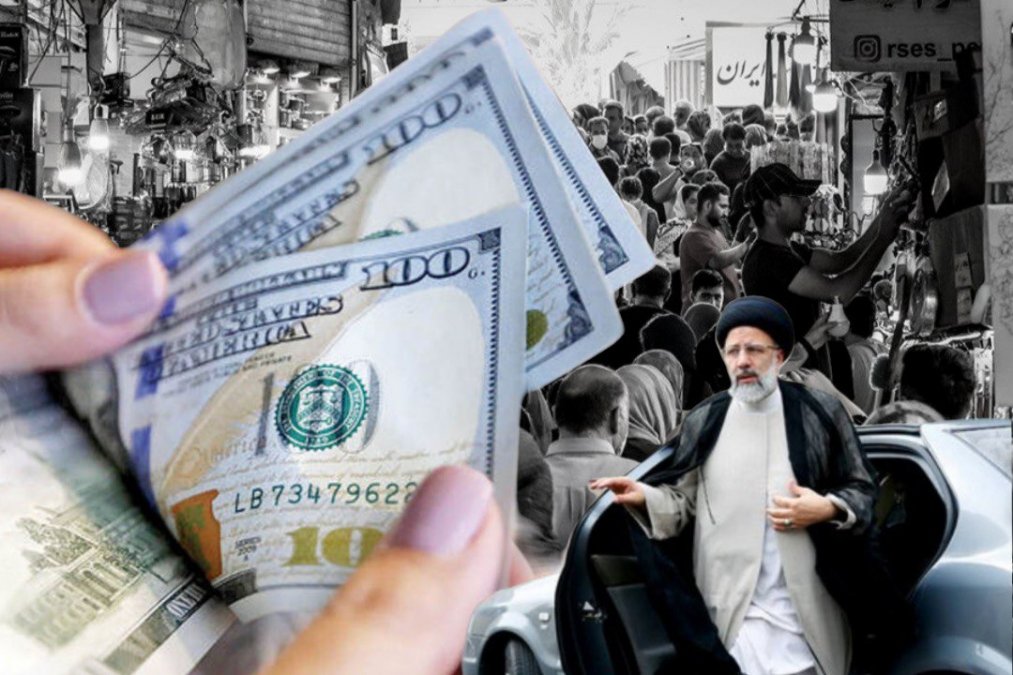A Temporary Agreement Will Not Alleviate Iran’s Economic Pain
A Temporary Agreement Will Not Alleviate Iran’s Economic Pain. According to Iran Gate, economists and economic experts are currently discussing the potential of a temporary agreement and its economic implications for the country on social media. Many specialists believe that even if such an agreement is reached, it will not alleviate the numerous pains of Iran’s economy. The question now arises whether an oil-for-food-and-medicine agreement can solve some of the livelihood issues faced by Iranian citizens.
The release of approximately $3 billion of Iran’s assets in Iraq has intensified speculation about reaching a temporary agreement. Although Iranian and American parties have denied such an agreement, considering it irrelevant, it seems likely that some of Iran’s blocked assets in certain countries will soon be released with significant restrictions for importing food and medicine, to be managed by a third country.
Qatar and the Hope That Was Not Revived
The recent trip of Mohammad Reza Farzin to Doha has strengthened the notion that Qatar is set to play a mediating role in the release of Iran’s blocked resources. This means, for example, that the South Koreans would transfer Iran’s blocked funds to Qatari banks, allowing the Islamic Republic to use these resources for purchasing food and medicine.
This agreement is conditional on the clause that the Islamic Republic will have no access to its foreign currency resources in Qatar for purposes other than purchasing food and medicine. Therefore, experts believe that such an agreement will not alleviate Iran’s economic pain, and Qatar, as the last glimmer of hope for the Islamic Republic to exit the economic crisis, has largely faded.
Farzin’s Warning to Exporters
As mentioned, according to the agreement, Iran’s foreign currency resources are not to be directly handed over to the Iranian government or Central Bank. However, recently, Mohammad Reza Farzin, who also heads the Central Bank, has delivered a stern speech promising direct intervention by the Central Bank in the currency market. This is despite his previous criticism of any government or Central Bank intervention in the markets before his appointment.
Given the model predicted for the release of Iran’s foreign currency resources, how does the Central Bank intend to intervene in the market and with what tools?
Amidst the harsh words of the Central Bank Governor, there was a very subtle yet important point: increased pressure on exporters to return foreign currency to the country. He drew a line for economic activists by referencing the foreign currency commitments and pledges of exporters and announced stricter measures by his administration regarding the repatriation of foreign currency from exports.
Raisi Plays the Exporters’ Ace
Considering the hints in Farzin’s controversial speech and the model for releasing Iran’s resources, it can be said that the government intends to play an ace that not only doesn’t belong to it but is a clear example of dipping into the pockets of exporters. In other words, the government and Central Bank plan to exert maximum pressure on exporters to secure the foreign currency they need for market intervention and temporarily suppress prices.
If implemented, this policy will have many destructive consequences, which economists and experts have openly discussed in recent days. Saeed Madani Zadeh, head of the Faculty of Management and Economics at Sharif University, has also reacted to Farzin’s recent statements, describing it as a warning bell for further nationalization of Iran’s economy. Many other renowned economic experts have also emphasized the dangerous nature of Farzin’s proposed ideas, identifying them as a lever for further closing the political, economic, and social space of the country by Ebrahim Raisi’s government.
In other words, Ebrahim Raisi’s government intends to use money that belongs to the country’s producers to temporarily suppress prices, thereby setting the stage for suppressing social movements in the country. Simply put, the revolutionary government wants to use a flimsy agreement with the U.S. as a lever to exert more pressure on society—a point that could inject despair among various segments of society and draw attention to the currency market for a short time. However, neither will it alleviate the numerous pains of Iran’s economy, nor will it quell the ongoing social movements in Iran.
English
View this article in English

